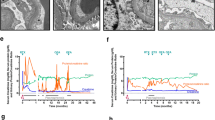Abstract
When focal segmental glomerulosclerosis (FSGS) has reached the stage of chronic renal insufficiency, further progression is usually considered inevitable. African-American patients are believed to exhibit a particularly aggressive form of FSGS. We have treated five African-American patients, aged 11–18 years, with FSGS and reduced renal function using intensive intravenous methylprednisolone protocol, combined with chlorambucil in three cases. All patients had a pretreatment creatinine clearance of less than 50 ml/min per 1.73 m2. Three patients responded with normalization of creatinine clearance and serum albumin levels and had no or only minimal proteinuria at latest follow-up. One patient showed no improvement and one patient progressed to end-stage renal disease. These findings indicate, for the first time, that even severe FSGS may respond to aggressive methylprednisolone with or without alkylating agent treatment, and that African-American race does not preclude a favorable response.
Similar content being viewed by others
Author information
Authors and Affiliations
Additional information
Received: 12 June 1998 / Revised: 17 November 1998 / Accepted: 18 November 1998
Rights and permissions
About this article
Cite this article
Aviles, D., Irwin, K., Dublin, L. et al. Aggressive treatment of severe idiopathic focal segmental glomerulosclerosis. Pediatr Nephrol 13, 298–300 (1999). https://doi.org/10.1007/s004670050612
Issue Date:
DOI: https://doi.org/10.1007/s004670050612




